| Written by Leo Miller 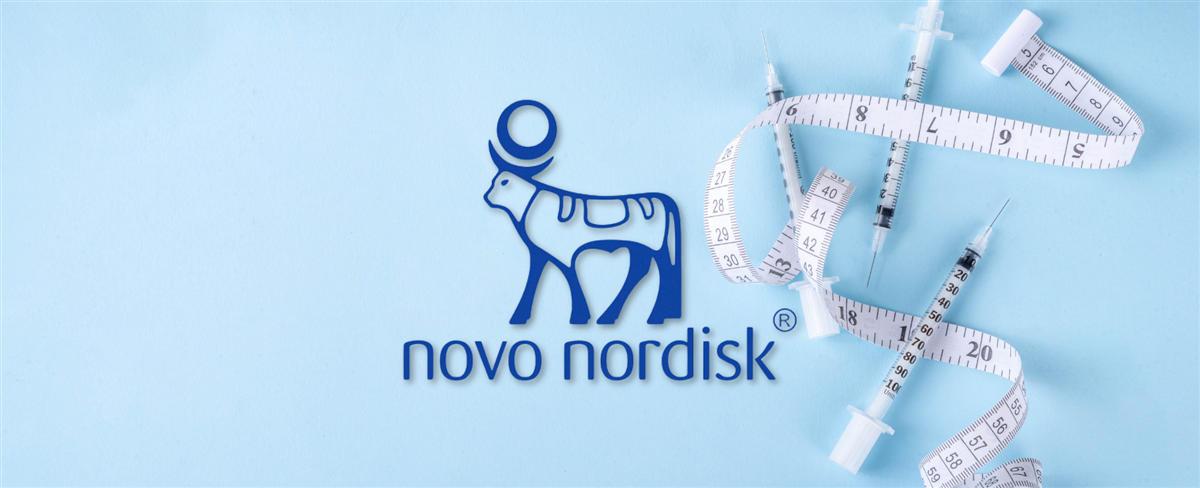
Recent sales of a little-known stock, Madrigal Pharmaceuticals (NASDAQ: MDGL), could bode well for Novo Nordisk A/S (NYSE: NVO). The pharma industry giant has seen explosive sales growth for its GLP-1 agonist drug, semaglutide. Marketed through the names Ozempic and Wegovy, sales of the drugs grew 32% and 76% through the first nine months of 2024, compared to the same 2023 period. However, shares of Novo Nordisk have fallen considerably since the all-time highs they reached in the middle of 2024. Now, the stock has provided a total return of just 5% on the year, as of the Dec. 17 close. Much of this has been due to further clinical results that showed stronger weight loss efficacy for Zepbound. It is the GLP-1 agonist drug sold by Novo’s top competitor, Eli Lilly (NYSE: LLY). I’ll break down the fall from grace that Novo shares have experienced in the second half of 2024. I’ll then explain other clinical and financial results that could help reignite Novo shares. Semaglutide Facing Negative News on Multiple Fronts In mid-2024, a study tested Novo's semaglutide against Eli Lilly's Zepbound, also known as tirzepatide. The goal was to see which drug resulted in a larger amount of weight loss. Patients who took tirzepatide lost more weight than those on semaglutide at every measured interval. After 12 months, patients taking Lilly’s drug saw nearly 7% more weight loss than those taking Novo’s. In December, researchers released further data confirming these findings. This news has been a dark cloud hanging over Novo shares. They have dropped 24% since researchers released the study in July, as of the Dec. 17 close. Clearly, markets are concerned about Novo’s ability to keep up the sales growth of its GLP-1 when an apparently superior treatment exists. Also, there is much chatter about the drug being subject to Medicare price negotiations. This would lower the price of the drug, reducing the amount of revenue Novo could receive from each Medicare patient. Meanwhile, market commentators don’t seem to believe Zepbound will have to undergo the same scrutiny. MASH: A Possible Next Frontier for Semaglutide Although Novo and Lilly’s drug is currently only approved to treat obesity and diabetes, the companies are continually researching them to treat other conditions. This includes metabolic dysfunction-associated steatohepatitis (MASH). This is a disease where fat builds up in the liver, leading to scarring and cirrhosis if left untreated. It is different from alcoholic steatohepatitis (ASH). The liver damage is not due to excessive alcohol use. For this reason, it is also referred to as non-alcoholic steatohepatitis (NASH). There were no Food and Drug Administration (FDA) treatments approved for MASH until recently. Madrigal Pharmaceuticals received FDA approval for its MASH treatment in March. Since then, sales have been exploding. Revenues from the MASH drug Rezdiffra grew by over 400% from Q2 of this year to Q3. The $62 million in sales crushed consensus projections on Wall Street by 83%. Now, some analysts are projecting sales of the drug to top $500 million in 2025. By 2030, analysts at Evaluate expect Rezdiffra sales to top $3 billion. They see the entire MASH treatment market worth nearly $10 billion a year. Phase 3 trial results suggest that Novo could take a large part of this market. The MASH trials' main goals are to improve liver fibrosis and resolve steatohepatitis without worsening either condition in people with MASH. Researchers compare this to a placebo. In patients who took semaglutide, there was a 17% greater rate of achieving both endpoints compared to the placebo group. The difference between patients who took Rezdiffra was just 12%. This points to a possible efficacy advantage compared to Rezdiffra. MASH Approval Could Help Change the Narrative Around Semaglutide With these results, Novo plans to file for regulatory approval of semaglutide to treat MASH in the first half of 2025. It will do so both in Europe and the United States. This could make the company’s drug the second to enter the MASH market. Given Rezdiffra's explosive sales growth, Novo may achieve the same outcome if authorities approve its drug. Success in this multi-billion-dollar market could be a shot in the arm for Novo's value. It would help the sentiment around semaglutide, given recent negativity. Still, Novo will need to keep innovating in the weight loss market to maintain its dominant position over Eli Lilly and other competitors. Novo still maintains a 65% market share in global GLP-1 volume.  Read This Story Online Read This Story Online | Welcome to a year of unparalleled opportunities! Dive into our exclusive guide, "7 Stocks Set to Soar," meticulously selected to elevate your portfolio in 2025. Step into 2025 with confidence and the right assets at your fingertips. Click below to opt-in and receive up to two additional free bonus subscriptions. Unsubscribe at any time.  [Unlock Your Report Now] [Unlock Your Report Now] |
| Written by Gabriel Osorio-Mazilli  Every once in a while, the markets align themselves to offer investors a perfect way to get into a specific sector, with every tailwind behind it coming from other asset classes. Today, there are tailwinds brewing in the spreads between value stocks and growth stocks, which have fallen to a multi-decade low to show investors a potential shift in the market for the coming months. Every once in a while, the markets align themselves to offer investors a perfect way to get into a specific sector, with every tailwind behind it coming from other asset classes. Today, there are tailwinds brewing in the spreads between value stocks and growth stocks, which have fallen to a multi-decade low to show investors a potential shift in the market for the coming months.
When investors graph out the difference between prices in the iShares S&P 500 Value ETF (NYSEARCA: IVE) and its distant opposite the iShares S&P 500 Growth ETF (NYSEARCA: IVW), they’ll notice that today’s level would imply that value stocks are now a tremendous opportunity to buy, but there is an even greater indicator at play for the energy sector. Acting as a mirror image of oil prices, this value-to-growth spread and its recent selloffs would call for a major rally in oil prices. This is why investors need to start considering stocks in the oil value chain, such as Transocean Ltd. (NYSE: RIG) at the top of the value chain, Occidental Petroleum Co. (NYSE: OXY) as a Warren Buffett pick, and finally, a bottom-market pick through Exxon Mobil Co. (NYSE: XOM). Why Falling Value vs. Growth Spreads Signal Potential Rallies in Oil Prices Growth stocks have significantly outperformed value stocks, driving their spread (the performance gap between the two) to a multi-year low. This dynamic has important implications for the economy and the energy sector. One potential outcome is that growth stocks could face a major pullback, prompting a “flight to safety” across the broader market. In such scenarios, assets like oil and gold often experience rallies. With gold already approaching new highs, this could signal an impending rally in oil prices as part of a broader commodity cycle. Transocean Stock: First in Line to Earnings Growth Now that Transocean stock is trading at only 53% of its 52-week high, investors might see an opportunity to buy it and capitalize on potential rallies in the broader sector. This is why Wall Street analysts now recognize the inherent upside in this stock. They have placed a consensus price target of $6.25 today, calling for up to 70% upside from where it trades today. However, these analysts aren’t the only ones willing to express their optimism about Transocean stock. Institutional investors from Primecap Management decided to boost their holdings in Transocean stock by 0.4% as of November 2024, netting their position at a high of $239.4 million today or 6.4% ownership in the company. This move gives investors a gauge for optimism in this name for the coming rally in energy names. Because Transocean leases out the equipment to the big oil producers before they even get started with new drilling, it is set up to get paid first in the value chain, justifying the upside figures behind the stock right now. Wall Street analysts are also forecasting net earnings per share (EPS) for the coming 12 months, up from today’s net loss. Why Warren Buffett Justified a Purchase in Occidental Petroleum Stock Compared to the rest of the energy sector, Occidental Petroleum stock trades at a price-to-earnings (P/E) ratio of 12.1x today, a significant discount to the sector’s average 16.9x valuation today. Any stock can become cheap, but Buffett saw enough reason to buy this stock because of its profitability. Occidental Petroleum’s financials show the company generated up to 14.9% in return on equity (ROE) rates. For retail investors, this means an even better opportunity, considering that the stock is now below the levels where Buffett started buying it, especially as it has sold off to 53% of its 52-week high. Even short sellers decided to step away from this stock, and its potential upside is coming up, as Occidental Petroleum’s short interest has declined by as much as 3.1% over the past month alone, a sign of bearish capitulation. Institutional Capital Flows Into Exxon Mobil Stock As of late November 2024, Franklin Resources decided to boost their investments in Exxon Mobil stock by as much as 16.3%, bringing their net holdings to a high of $3.9 billion today. In addition to these institutional investors, some Wall Street analysts decided to boost their views on the stock. Those from the UBS Group, particularly, reiterated their buy rating on Exxon Mobil stock, this time placing a $147 price target on the company. To prove this view right, the stock would need to rally by as much as 36% from where it trades today, not to mention a new high for the year. Even if the shift out of growth stocks into other value stocks, such as these energy plays, takes a while to come through, Exxon Mobil stock offers shareholders a payout of $3.96 a share today, or an annualized dividend yield of 3.7%.  Read This Story Online Read This Story Online | |
| Written by Thomas Hughes 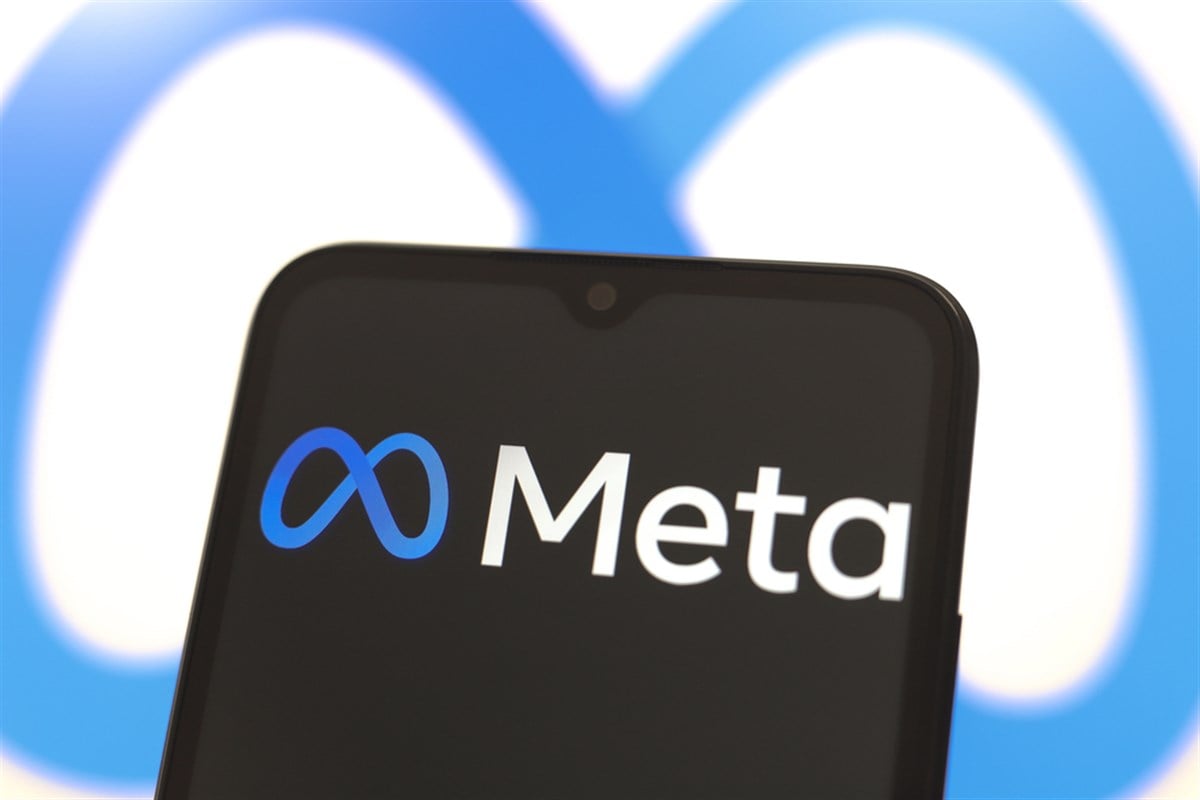
NVIDIA (NASDAQ: NVDA) isn’t the most upgraded stock at the end of the Q3 earnings reporting season, ending a trend that has been in place for nearly two years. While potentially bad news for the market, the reason why should give investors hope that the rally in equities is broadening and the S&P 500 will sustain its uptrend. NVIDIA, now ranked 12th on MarketBeat’s list of Most Upgraded Stocks, has been supplanted by consumer names and companies well-positioned for the second wave of AI. The second wave of AI is the implementation of AI models and applications, a segment of the industry expected to grow faster and be larger than infrastructure, which was the first wave. Walmart Emerges as the Most Upgraded Stock Following Q3 Earnings Season Walmart (NYSE: WMT) is the most upgraded stock from the Q3 earnings reporting season. The company received 38 positive revisions or upgrades over the last 90 days, 16 since the Q3 results were released. Activity since the release includes a single downgrade to Hold, but the $91 price target aligns with the broad consensus in mid-December. The consensus aligns with the market price but is rising in 2024 because of the revisions trend, up 50% for the year and 15% since the Q3 release with most fresh targes above it. The revision trend leads to a new all-time high and the potential for a move to $115 or higher. The reason why is performance. Walmart continues to prove its leadership position, outgrowing its competition while taking market share. Results in 2024 include persistent outperformance, solid margin, improving guidance, and sufficient cash flow for robust capital returns. The capital return includes the dividend and share buybacks that offset share-based compensation and reduce the count incrementally compared to the prior year. The outlook for 2025 is for growth, cash flow trends, and capital return to continue. Among the catalysts for the stock price is the failed merger of Kroger (NYSE: KR) and Albertson’s (NYSE: ACI), which leaves Walmart’s grocery business untouched and safely behind its moat. 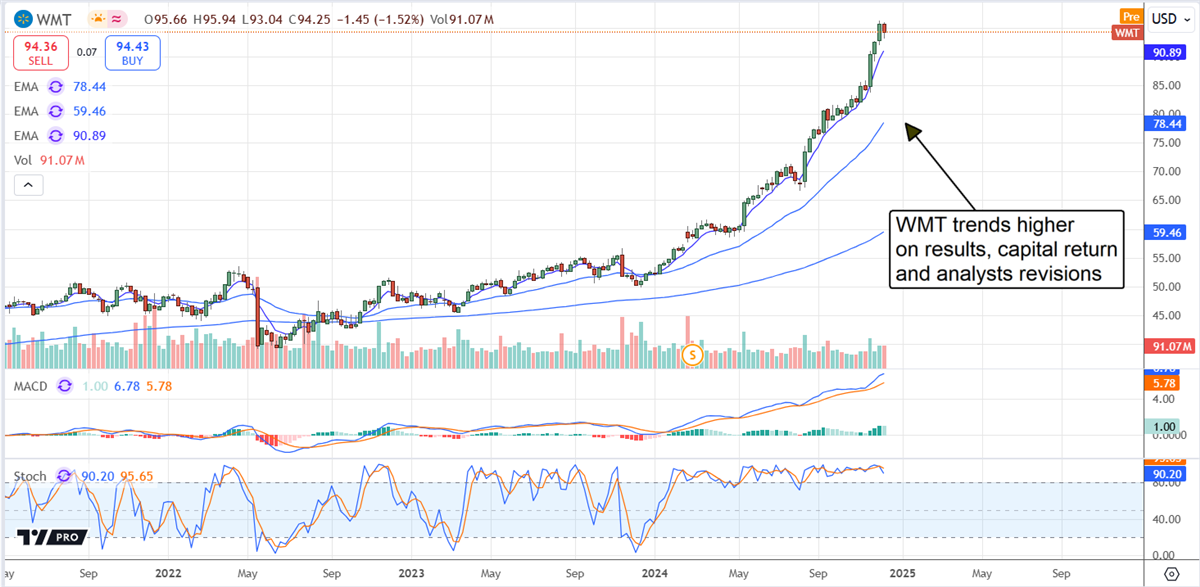
Meta Platforms: Moves Up Into 2nd Position Meta Platforms (NASDAQ: META) is not a newcomer to the most upgraded stock list but has moved to the 2nd position. The stock received 37 positive revisions during the quarter, 19 after the Q3 release. Highlights from the Q3 release include better-than-expected 19% top-line growth and leveraged gains on the bottom line aided by AI. AI is helping to drive engagement and monetize traffic across the Meta Platforms family of apps, including Facebook, and its impact is expected to grow. The only bad news from the report is that AI spending is expected to ramp up in 2025, but it is offset by the long-term gains the investment is expected to drive. Meta is also deepening its partnership with Oracle, using the Oracle cloud to train its Llama AI models while Oracle embeds it into its services. Analysts rate Meta Platforms as a Moderate Buy and see it advancing slightly at the consensus. However, the consensus target is rising in 2024, up nearly 100%, and the revision trend is still positive. The recent targets lead to the high-end range near $800, roughly 30% upside from mid-December price points. 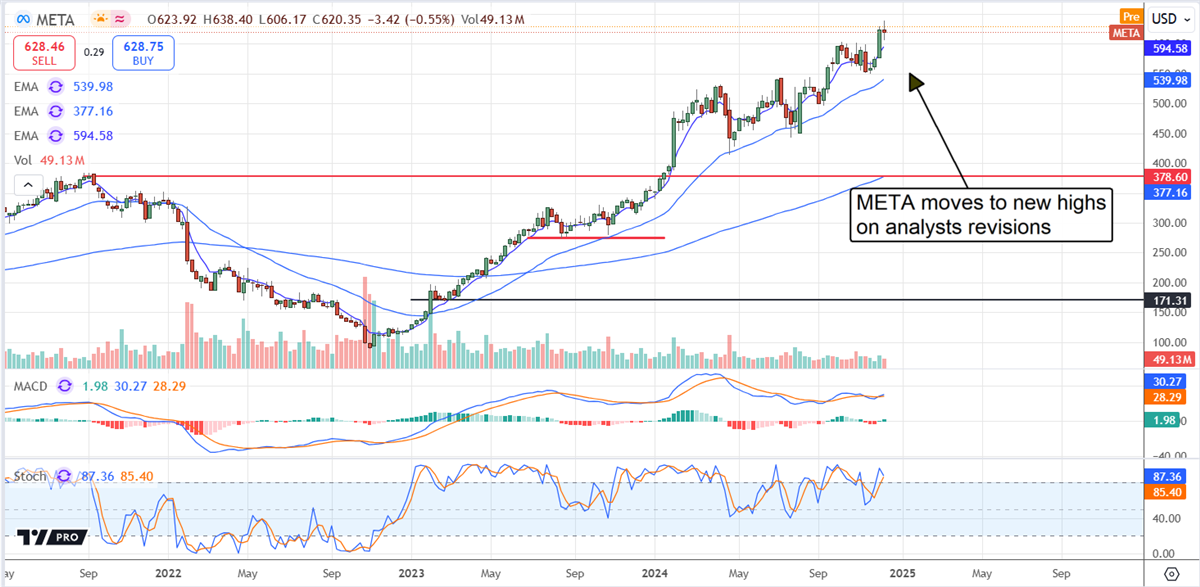
Salesforce: A Force to Be Reckoned With Salesforce (NYSE: CRM) is among today's best-positioned AI service companies. The business has used data mining and machine learning since its inception and has built on its leadership position. Today, Salesforce is the #1 platform for integrated CRM services, allowing businesses to generate, store, track, and utilize their data while improving efficiency and keeping customers happy. Highlights from Q3 include mixed results relative to consensus forecasts. Still, the bar was set high, and sustained growth, leveraged bottom-line results, cash flow, a fortress balance sheet, and capital returns offset weaker-than-expected earnings. Salesforce buys shares and now pays a dividend. The company joined the ranks of wannabe Dividend Aristocrats, initiating a token distribution early in the year. The payout is worth about 12% of the earnings, which leaves ample room for annual increases, which may run in the double-digit range because of earnings growth. Regarding the analysts, Salesforce stock received 37 positive revisions in Q4, 22 since the Q3 results were released. The consensus target implies a low-single-digit increase from the $355 level but is rising, up more than 50% in the last year and 15% in December, with revision leading to higher levels. The high-end range puts this market near $450 in 2025, another 30% upside. 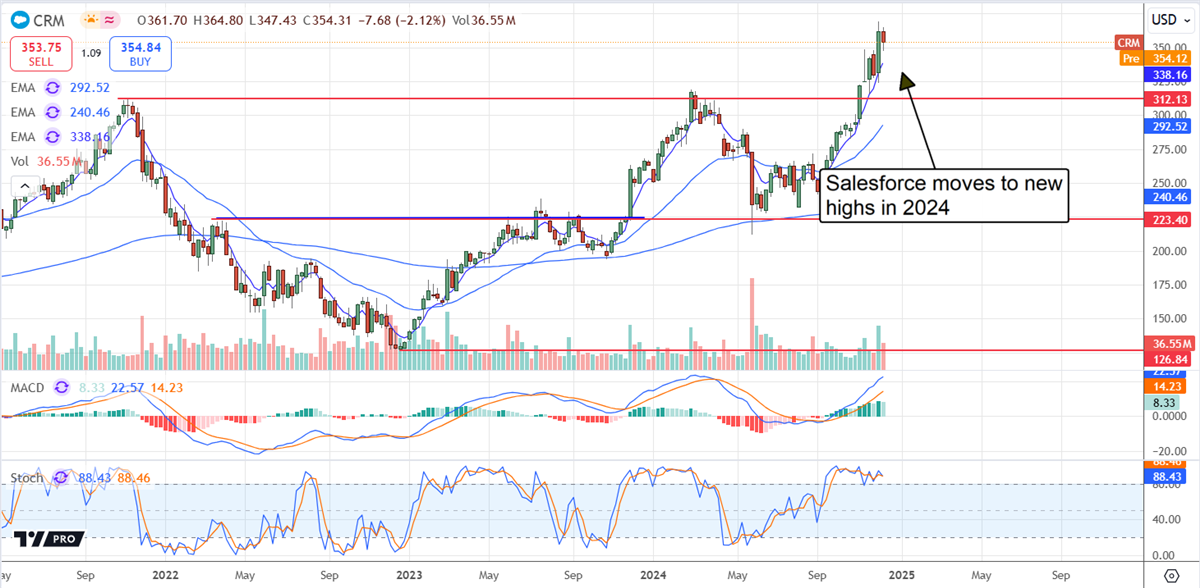
 Read This Story Online Read This Story Online | For the first time in years, you can feel a crackling energy...
And a reason to be hopeful for the future again.
It's like we woke up in a different America.
And maybe we can finally move on from under the dark cloud that seemed to hang over this country for the past years.  Watch my emergency briefing here >>> Watch my emergency briefing here >>> |
|
